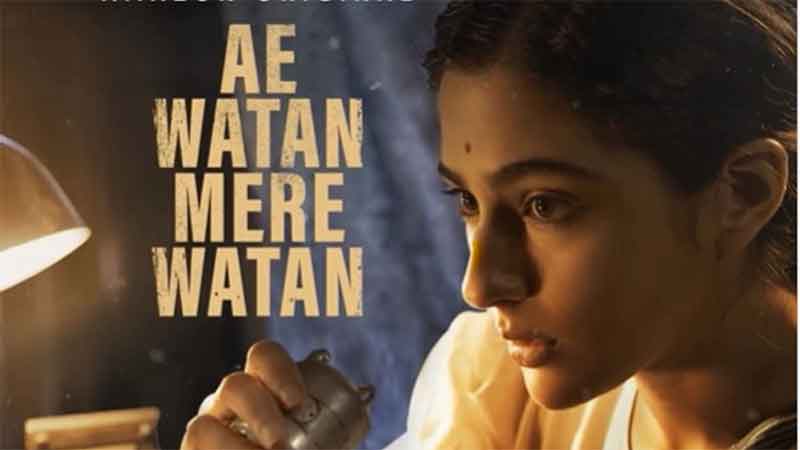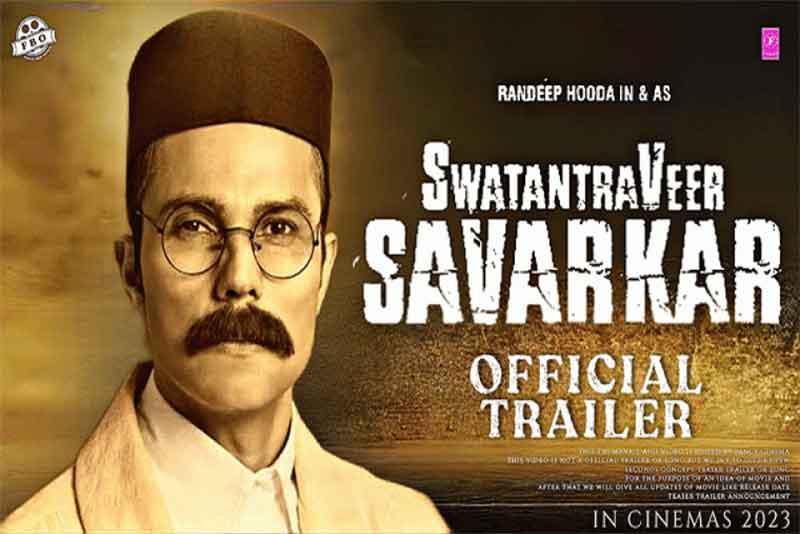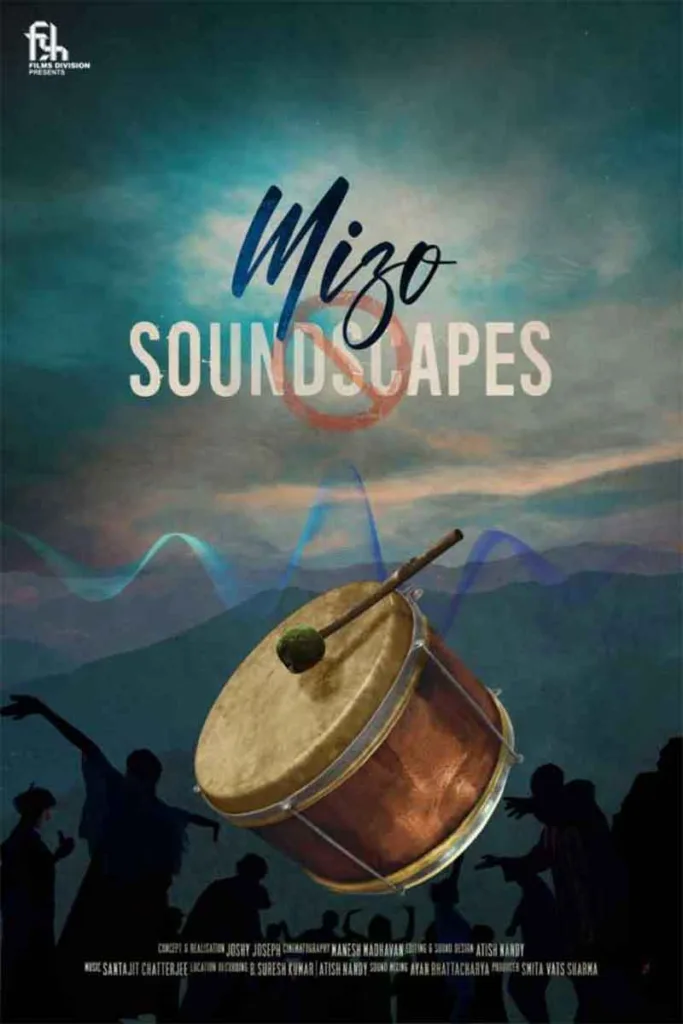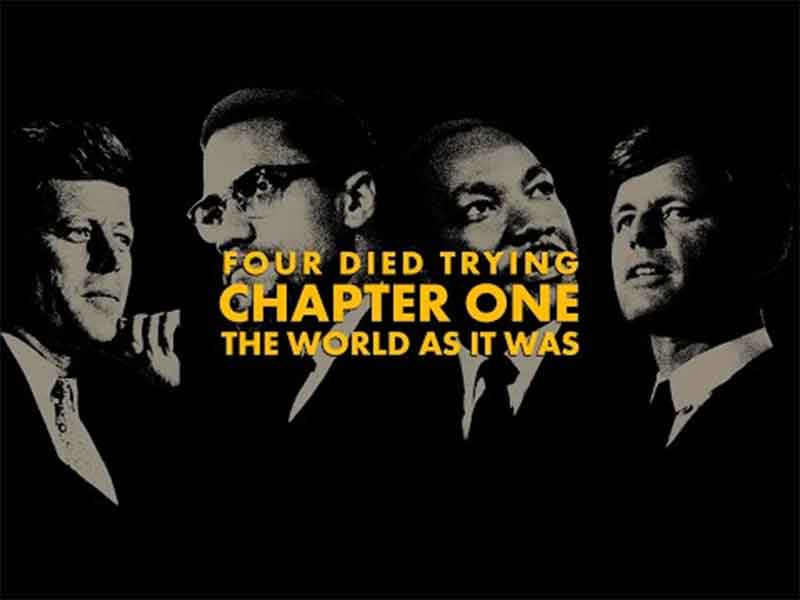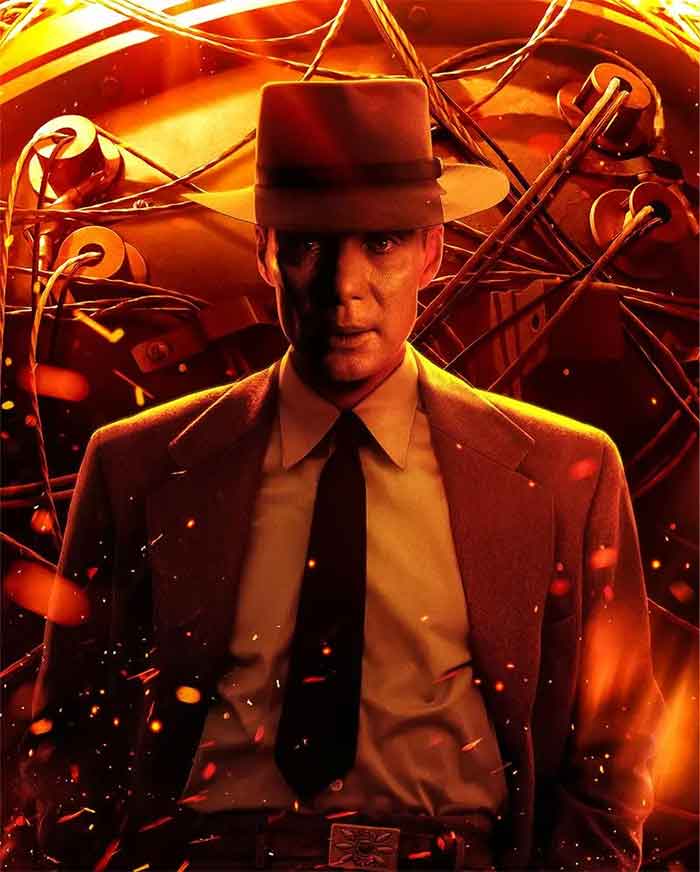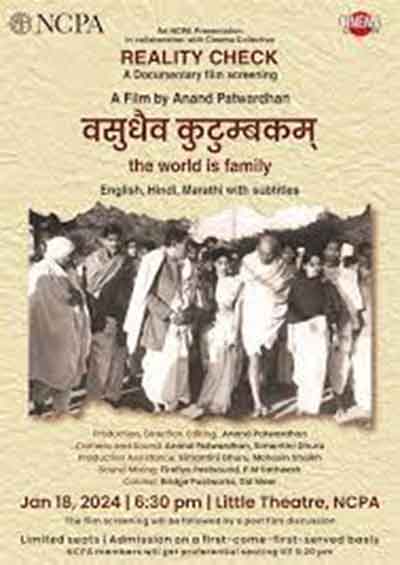
A key part in Anand Patwardhan’s recent acclaimed film is his apt observation that his two uncles Achyutrao Patwardhan and Raosaheb Patwardhan chose to go into political oblivion after independence. They did this, having played a significant part in the freedom struggle, their prominent role in the formation of the Congress socialist party.
This is remarkable considering the pursuit for power that was in evidence in the early years and is hitting us so hard.
The film grips even that section of the audience which is not aware of the nuances of social and political history.This because of his portrayal of the human relations, especially mother Nirmala Patwardhan, a pioneer pottery artiste and father, very affable old figure.
Anand has a formidable family background on both the mother and father’s side. Her father Bhai Pratap was a prosperous Sindhi businessman in Sind before partition whom Mahatma Gandhi knew well because of his support to the freedom struggle.
One is awestruck by the rare, old photographs and film footage. The film is appropriately titled Vasudhaiva Kutumbakam, drawn from a well known Sanskrit expression, meaning the whole world can be one family, here one cultured family stands for the world outside without seeking power.This is such a refreshing change for the trend of more and more families holding, acquiring and expanding their political power.
Art is the beginning point of the film. Anand’s mother studied in Tagore’s Shanti Niketan in the company of such stalwarts as Shankho Chuahduri, sculptor, and Nandlal Bose, the famous artist, who provided the decoration for the manuscript of the Indian Constitution. Shankho’s brother was the famous Sachin Chaudhuri, founder of the Economic Weekly, now the EPW.
A pioneer potter, Nirmala Patwardhan became interested in pottery and glazes while a student at Santiniketan in the 1940s. In 1957, she went to the State Academy of Arts, Stuttgart, Germany, to study ceramics, where Prof. Ulrich Gunther, an expert in glazes fuelled her interest even further. She trained with Bernard Leach and Ray Finch in England in throwing techniques. She has compiled a book, Handbook on Glazes, from her own experiments and formulae of glazes that are based on locally available materials. This was reprinted in 2007 as New Handbook for Potters. She re-created a glaze, now popularly known as Nirmala Chun Glaze, an opalescent stoneware glaze first developed by the Chinese around the 11th century. It is one of the most sought-after glazes. In 1994, she was awarded Senior Fellowship by Government of India to pursue work on old Chinese glazes using Indian clays and minerals. She has been teaching pottery, glazing and Raku techniques in workshops that she has been organizing over the last four decades, at her studio in Pune.
Nirmala passed away in 2007. she played a crucial role in promoting the technical development of studio pottery and ceramics in India, including publishing a seminal book- ‘Hand Book For Potters’. She trained a generation of Indian studio potters ..
Martin Karcher, a prominent pottery artiste, was in awe of her work ever since he met her in her studio in Jor Bagh in Delhi in 1973 when he was posted there during his stint with the World Bank. It was easy to cycle in Delhi over long distance, he says. He wrote – in not having inherited her passion for glaze making and testing, I’m totally in awe of the prodigious amount of work that she put into it, which resulted in the publication of the Handbook for Potters in 1984, and was followed by the publication of an expanded and updated volume called New Handbook for Potters in 2005. The latter includes a goldmine of information on materials used, tips and suggestions. It clearly met a need among Indian potters and, as Anand informs me, the volume ran out of print in no time, and potters had to rely of purloined xerox copies of the book.
Achyutrao Patwardhan was taken on the Congress Working Committee by Jawaharlal Nehru in 1936, but he resigned in a few months and thereafter resisted Nehru’s invitations to join it. From 1935 to 1941 he organised Shibirs (education camps for young men), to teach them Socialism and to prepare them for socialistic activities.
He began his pollical life by joining the Dandi march and then took a prominent part in the Quit India movement, playing a key role in organising the underground movement. S.M. Joshi, the socialist veteran, has described this role graphically in his autobiography in Marathi Mee S.M..
Later, Achyutrao immersed himself in the philosophical Theosophy movement and that of his philosopher friend J Krishnamurti.
For this writer some of the most interesting scenes relate to Anand’s journey to Pakistan in 2003 as part of a peace delegation. I was there in that journey, first we went by bus from Amritsar to Lahore and then took a train to Karachi where we got a big reception.
For Anand this gave him a big opportunity to visit his grandfather’s father’s home, a beautiful building, now known as Maitri Bhavan and to conduct interviews there.
The screening at the NCPA , organised by Cinema Collective, saw a full house. The organisation will screen a film on poet Kaifi Azmi on February 22 at the same venue, according to Veena Bakshi, film maker.
Vidydhar Date is a senior journalist and author of a book on public transport)

